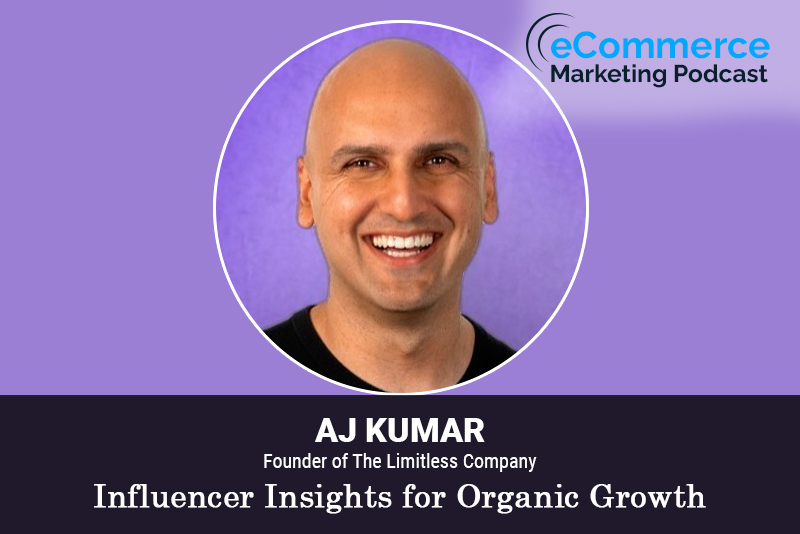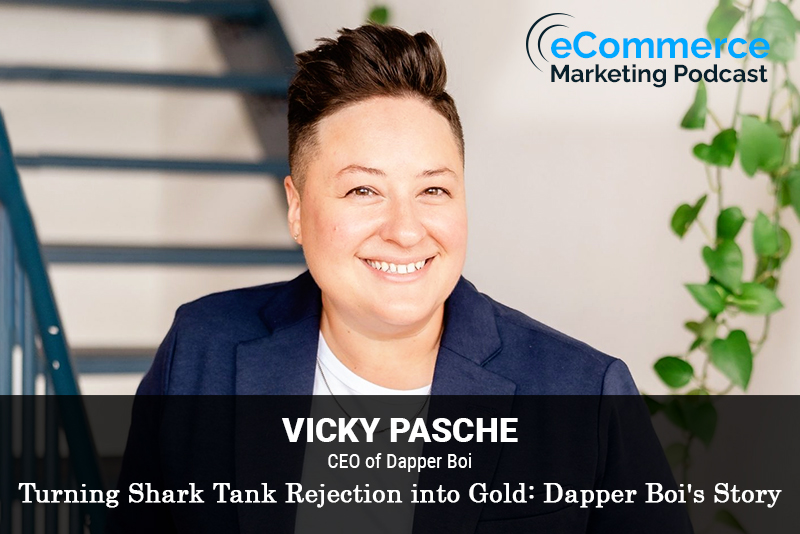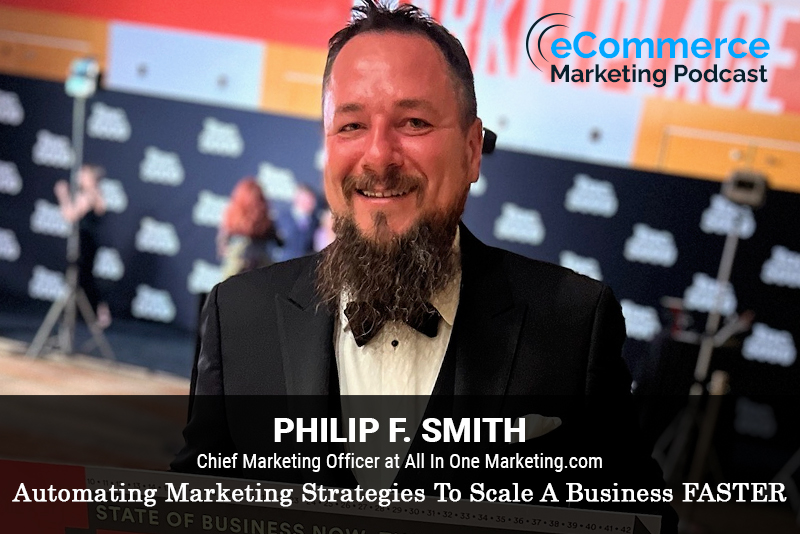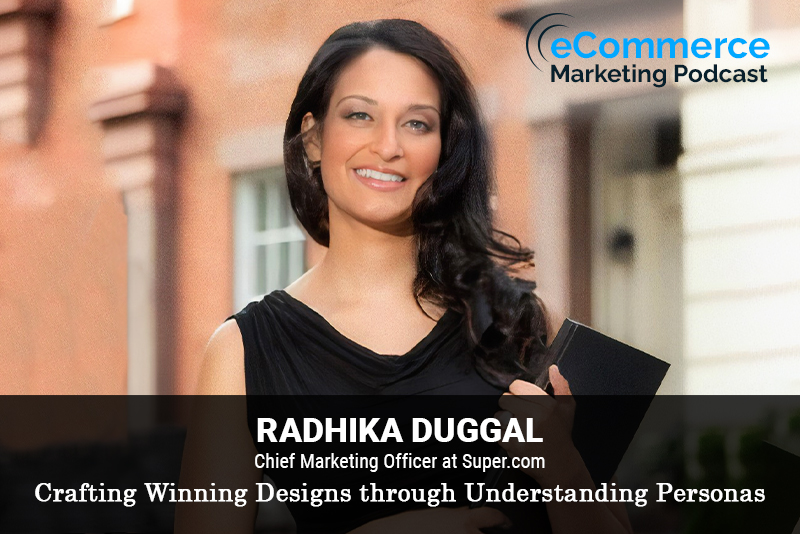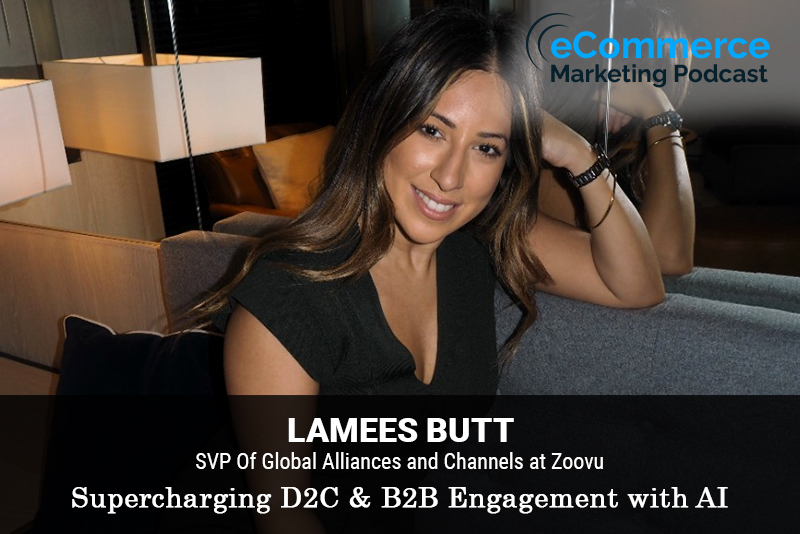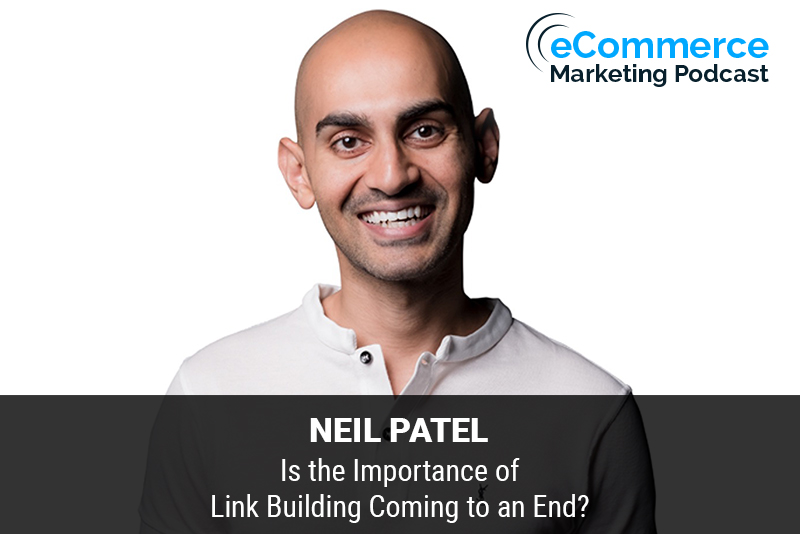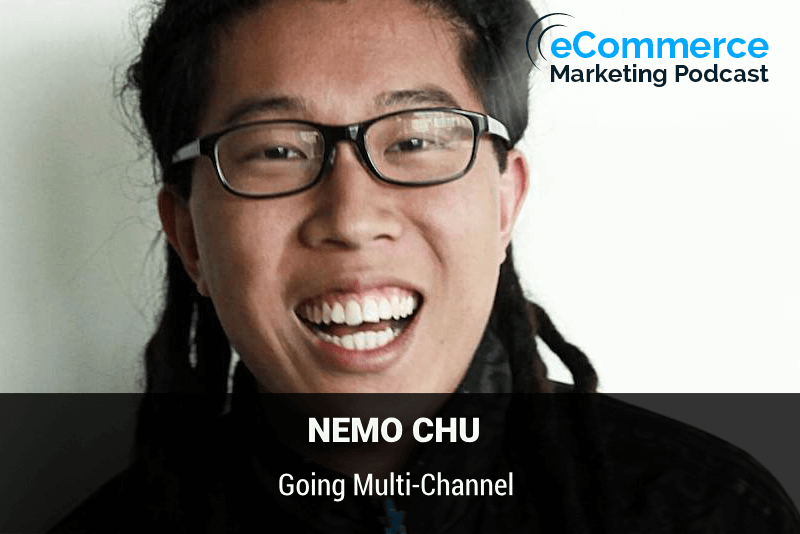
The eCommerce Marketing Podcast walks you through everything that goes into ecommerce marketing — from inbound marketing to paid advertising to conversions. Learn the strategies top marketing experts use to grow their businesses.
Aj Kumar, the “Digital Maestro,” is the founder of The Limitless Company, a studio system for influencers. AJ and his team are on a mission to help entrepreneurs in the Creator Economy build for-profit human-healing brands. Aj has helped corporate brands like Salesforce, Mint, Intuit, and industry-leading personal brands including Neil Patel, Nikki Haskell, Nontoxicdad, and Kimberly Snyder.
In this episode, you will learn
How to leverage personal branding to build credibility and influence
In the context of ecommerce, how instrumental has influencer marketing been for brands and examples of a successful influencer marketing campaigns
How do you balance organic social media efforts with paid promotions, and what strategies are the most effective in driving organic engagement
Instance where personal branding and influencer marketing strategies didn’t go as planned and the lessons learned
With so many social media platforms now available, how does The Limitless Company decide which platforms to focus on for organic growth and influencer marketing
Advice given to ecommerce businesses looking to build their personal brand and leverage influencer marketing for the first time and the common pitfalls to avoid
Head over to leadfeeder.com and sign up for a 14-day (no strings attached) free trial.
For show transcript and past guests, please visit https://www.ecommercemarketingpodcast.com
Or on YouTube at:
https://www.youtube.com/channel/UC3PgT0NOGzpdPGQtBK0XLIQ
Follow Arlen:
Twitter: https://twitter.com/askarlen
Facebook: https://www.facebook.com/arlen.robinson.7
Instagram: https://www.instagram.com/arlenyohance/
LinkedIn: https://www.linkedin.com/in/arlenrobinson/
Past guests on the ecommerce marketing podcast include Neil Patel, Nemo Chu, Luke Lintz, Luke Carthy, Amber Armstrong, Kris Ruby and many more.
Thanks for listening. Be sure to subscribe and leave a review.

Arlen Robinson 00:01
Welcome to the e-commerce marketing podcast, everyone. My name is Arlen, and I am your host. Today we’ve got a very special guest, Kausambi Manjita, the Chief Product Officer at Mason. We discuss the future of AI in retail and e-commerce and how it can benefit businesses. Kausambi shares her insights on how AI technologies can help e-commerce businesses drive growth, increase personalization, and improve customer experience. She emphasizes the importance of understanding the specific needs and challenges of a business and finding AI solutions that can address those issues. Kausambi also highlights some interesting AI innovations in the beauty and personal care industry, such as skin tone finders and personalized cart challenges. So welcome to the podcast, Kausambi.
Kausambi 00:43
Thank you so much, Arlen. I’m so excited to be part of this podcast. It’s one of the longest-running in commerce, for commerce, and made by commerce experts. I’m super, super excited.
Arlen Robinson 00:54
Great. Thank you for that. Yes, I am super excited to talk to you. It has definitely been a long journey. We are one of the longest-running e-commerce marketing podcasts that are around and we’re steadily going strong. Every episode is always enlightening for me, and I’m definitely excited to talk to you and see what you have to offer. Before we get into all of that, why don’t you tell us a little bit more about your background and how you got into what you’re doing today?
Kausambi 01:36
Yeah, for sure. When you look back, everything connects. I think it all started with a keen interest in science fiction when I was young. I was in school when my dad got The Bicentennial Man by Isaac Asimov, and I got really hooked. I went down the rabbit hole of reading everything that Asimov had to offer, beyond the Hitchhiker’s Guide and the Dune series. It was exciting to think about cutting-edge things that change how we interact with our environment, which in turn changes how we operate and helps us do much more than we could as individuals.
Arlen Robinson 02:50
Right.
Kausambi 03:03
As life went by, I landed in engineering, did my post-graduation, and joined IBM Commerce. I was in Atlanta and Bangalore, working on supply chain and e-commerce solutions. That was my first foray into retail and consumer tech. It was about leveraging technology to make processes more seamless and human. Over the years, I’ve continued working in that space, and I can’t think of a better decision.
Arlen Robinson 04:00
Yeah, for sure. That’s awesome. Thank you for sharing that. It’s interesting that you mentioned your passion for science fiction. A lot of those novels deal with the intersection between advancing culture, technology, and humans. That’s kind of where we are now. We’re not quite at the Dune level, but we’re at the cusp.
Kausambi 04:48
Yeah, at the cusp.
Arlen Robinson 04:58
Very interesting that you have that passion. It sets the stage for our discussion on the future of AI in retail and e-commerce. For the business owners listening today, could you share your vision of how AI will transform retail and e-commerce over the next five years?
Kausambi 05:39
Yeah, it’s an important thing to dwell on. The biggest question on everyone’s mind, no matter the industry, is how AI is going to impact them. Right now, we might be using chatbots for emails or writing documents, but something big is going to happen. Specifically in retail, it’s about making individuals or groups more powerful, enabling them to do much more with less.
When you think about the shifts in technology, it’s always about making things simpler and more powerful, like the printing press or pens. With AI, we hear about job losses, but the number one change is how it makes individuals or companies more powerful. For example, a small e-commerce team can make a big impact without needing an army of data analysts. AI brings decision-making and actions to a simpler, more accessible level.
For consumers, AI allows brands to understand and react to needs and desires faster, creating a more personalized experience. In the next five to ten years, AI will enable teams to do much more with less and make consumer experiences more personal and responsive.
Arlen Robinson 10:51
Yes, very well said. With AI, not only are customers experiencing better user experiences, but smaller e-commerce brands also benefit by accessing more information and analyzing it quickly. This levels the playing field, allowing small shops to understand their market segment easier. How do you think AI advancements in e-commerce compare to those in traditional retail environments?
Kausambi 13:34
It’s starting in online sectors where the impact is observable from day one. For a small business, AI tools can help make significant impacts in operations and personalization. In retail, it’s harder to collect data without explicit consent. AI in retail will likely augment sales teams, helping them make better decisions and enhance customer experiences. For example, AI can nudge salespeople to offer personalized discounts based on customer behavior. While online retail sees immediate AI benefits, offline retail will focus more on augmenting the workforce and improving decision-making.
Arlen Robinson 19:09
Yes, I agree. In retail, gathering data is difficult compared to e-commerce. Post-purchase engagement and rewards programs help, but we’re still early with AI in retail. I think AI-powered robots assisting customers in-store could be a future advancement. What first steps do you recommend for a small e-commerce startup looking to integrate AI into their operations?
Kausambi 22:53
First, zoom out and look at your funnel to identify the weakest areas. Focus on specific use cases where AI can make an immediate impact. Large retailers think about digital transformation broadly, but small businesses should look for immediate results. Evaluate solutions that offer both short-term impact and long-term scalability. Avoid falling into the trap of installing too many apps that don’t communicate well with each other. Ensure the AI solutions you choose can scale with your business and provide long-term benefits.
Arlen Robinson 27:41
Yes, well said. For startups, it’s important to identify main issues and see if AI can be a solution. Don’t adopt AI tools just because they’re trendy; make sure they make sense for your business. Lastly, what’s the most interesting AI innovation you’ve seen in the e-commerce space?
Kausambi 28:56
There are many interesting things happening. In the beauty and personal care space, Fenty Beauty and L’Oreal have implemented AI skin tone finders that provide personalized foundation matches. Google has expanded its skin tone algorithms, making it more nuanced. A Korean brand takes it a step further with a robot that mixes pigments on the fly for custom foundations. These innovations focus on personalization and better customer experiences.
For us, we’ve worked on improving cart abandonment and completion rates by personalizing gamified incentives based on customer preferences. This has shown significant improvements in cart completion rates, demonstrating how personalized experiences can drive better results.
Arlen Robinson 33:59
Yes, those are some exciting innovations. The skin tone technology in the beauty space is impressive. It helps brands create tailored products and enhances customer experiences. Thank you for sharing those examples. As we wrap up, could you share a fun fact about yourself?
Kausambi 35:37
I love cooking and used to have my own food blog about seven or eight years ago. It grew to about 5,000 hits a month and got featured in Foodgawker and foodporn.com. It was a big deal for me, but I couldn’t balance it with my other work. Most people don’t know that I had a food blog and love sharing great food with people I care about.
Arlen Robinson 36:27
That’s awesome. Thank you for sharing that. Lastly, how can our listeners reach out to you if they want to learn more about AI technologies in e-commerce?
Kausambi 37:15
I’m active on LinkedIn. You can find me under my full name, Kausambi Manjita or K Manjita. I’m also on Instagram, where I share recipes occasionally. Our website is getmason.io, where you can chat with someone from my team.
Arlen Robinson 38:18
Thank you for sharing that. We’ll have the links to your site and social handles in the show notes and YouTube video description. This has been an awesome conversation, Kausambi. I appreciate having you on the e-commerce marketing podcast.
Kausambi 38:39
Thank you, Arlen. I’m excited and hope to catch up again in a few months. Take care.
Arlen Robinson 38:44
Take care.
Podcast Guest Info
Kausambi Manjita
Chief Product Officer at Mason

